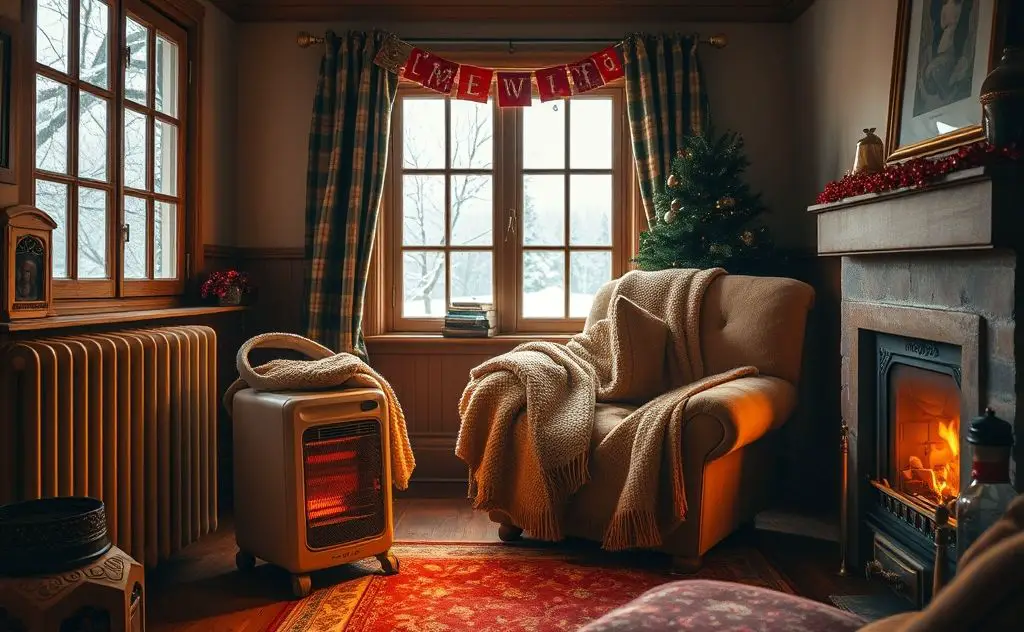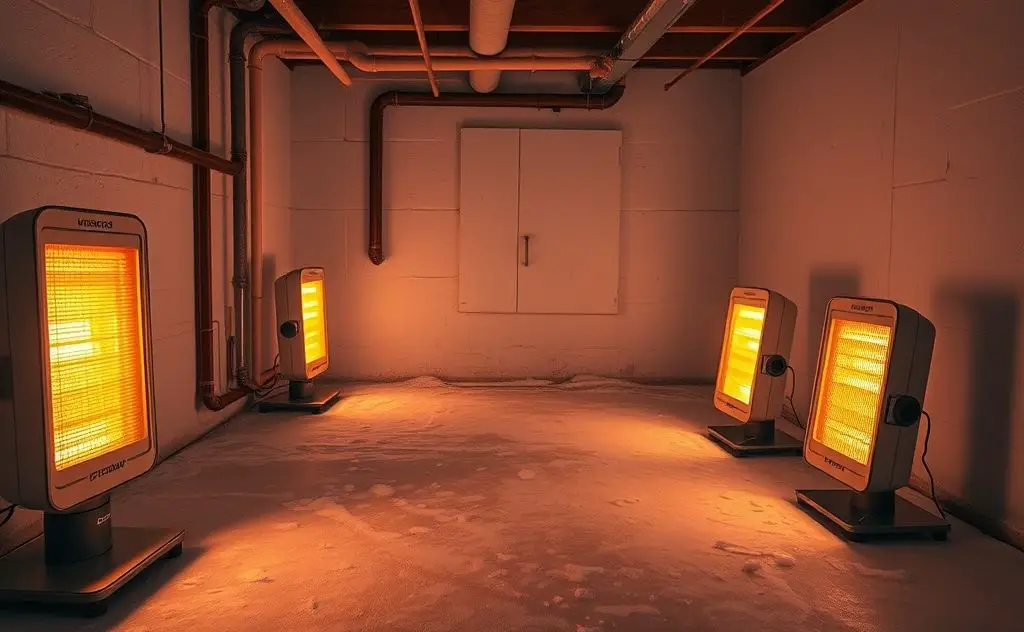Yes, space heaters can help prevent pipes from freezing by providing localized warmth in areas where pipes are exposed to cold temperatures, but it is essential to ensure they are used safely and monitored to avoid fire hazards.
Freezing pipes can cause thousands in water damage. Many homeowners wonder if space heaters offer protection during cold snaps. The answer depends on your home’s layout, insulation, and proper heater placement.

How Space Heaters Prevent Frozen Pipes
Space heaters work by warming the air around vulnerable pipes. Unlike whole-home heating systems, they target specific problem areas like:
- Basements with exposed plumbing
- Bathrooms on exterior walls
- Kitchens with pipes near outside vents
- Laundry rooms in unheated spaces
According to Stahl Plumbing, you don’t need to maintain 70°F – just keep temperatures above freezing (32°F) near pipes.
Best Space Heaters for Pipe Protection
Oil-Filled Radiators
These provide steady, even heat and are safer for unattended use. Oil-filled radiators maintain temperature well but take longer to warm an area.
Ceramic Space Heaters
With faster heat-up times, ceramic models work well in small spaces. Look for units with tip-over protection and adjustable thermostats.
Infrared Heaters
These directly warm objects (including pipes) rather than the air. Infrared technology can be more efficient for spot heating.

Key Placement Strategies
| Pipe Location | Heater Placement | Safety Considerations |
|---|---|---|
| Under sinks | 6-12 inches from cabinet (door open) | Keep away from cleaning chemicals |
| Basement pipes | Near water main entry point | Elevate off concrete floor |
| Garage plumbing | Between pipes and exterior wall | Use GFCI outlet |
Critical Safety Measures
- Never use extension cords – plug directly into wall
- Maintain 3-foot clearance from flammables
- Choose models with automatic shut-off features
- Check that your electrical system can handle the load
Alternative Pipe Protection Methods
For comprehensive protection, combine space heaters with these techniques:
- Pipe insulation: Foam sleeves reduce heat loss
- Heat tape: Wraps directly around pipes
- Water drip: Moving water freezes slower
- Cabinet doors: Open to allow warm air circulation
The Consumer Reports study found that pipe insulation combined with targeted heating provides the most reliable protection.
When Space Heaters Aren’t Enough
Space heaters work best in:
- Small, enclosed areas (under 150 sq ft)
- Moderate cold spells (above 0°F)
- Supplemental use with other methods
For whole-home protection during extreme cold, consider vented gas heaters or restoring your primary heating system.
Warning Signs of Frozen Pipes
- No water flow at faucets
- Frost on visible pipes
- Unusual odors from drains
- Banging or clanking noises
If pipes freeze despite precautions, shut off water immediately and call a plumber. Never use open flames to thaw pipes.
